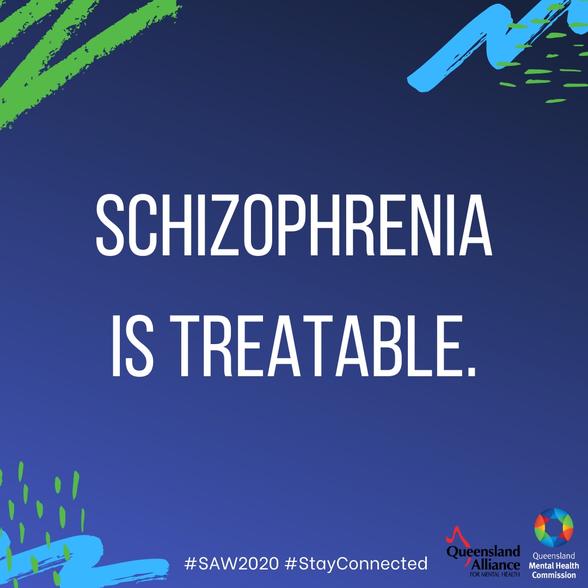“He’s a fantastic uncle, adored by my kids, and a great brother who would do anything for anyone.”
Shelly’s brother is known for his caring, compassionate and kind nature. He also has schizophrenia – an often-misunderstood complex mental illness which can cause distorted perception, thinking, emotions and behaviour.
Shelly’s family has a history of mental illness, but the causes of schizophrenia are a complex mix of genetic and environmental risk factors.
“When he was about 18, my brother started showing significant signs of mental illness,” Shelly says.
“He had shown some signs earlier, but we had put these down to mild drug use, experimentation. But it got worse as he got older.
“These were quite scary signs, like losing touch with reality, hearing voices, obviously having delusions. We knew something was very wrong.”
The stigma surrounding mental illness prevented Shelly’s brother from seeking help.
“He started self-medicating with alcohol and drugs because he was too scared to seek help,” she said.
“He got very, very unwell. He ended up in some scary situations and almost lost his life. Significant situations health-wise, and with the law. It got to a point where he thought he was going to die, and he didn’t want to do that.”
Shelly’s brother sought treatment when he was about 20 years old.
“At first he didn’t want to accept what was happening. He thought everyone was overreacting, and it couldn’t possibly be a significant mental illness,” she said.
“But once he was diagnosed and started taking medication, he began to realise how unwell he had been, and the events he’d been through.
“The guilt and the shame he felt over the impact he’d had on our family made him feel worse,” Shelly says.
“But it wasn’t all bad. There were times where we could actually look back, even when he was unwell, and do some fun things and have a good laugh about it.”
He detoxed from drug and alcohol use and has been sober for 15 years. He also sought therapy, and still sees a psychologist regularly.
“This made a huge improvement in his life. It gave him skills to deal with what was happening, and an independent person to talk to,” Shelly says.
Despite schizophrenia affecting one in 100 people, a lack of understanding has led to common myths that make life difficult for people with schizophrenia, and their families.
One misconception is that people with schizophrenia are violent, when they are actually more likely to be survivors of violence themselves.
“Because of the way things were, my brother could appear to be aggressive at times. But it was towards himself,” Shelly says.
“It was because he was so angry at himself – the voices that he heard were actually directed at him. It actually put him in to a more vulnerable position.”
Shelly says the stigma surrounding mental illness makes it even more challenging to deal with.
“Stigma has always been in our lives from since we were very young,” Shelly said.
“Family members say ‘we don’t talk about that, it’s not appropriate, people don’t need to know’. People were scared to talk about it.
“If you’re unwell, people avoid you in the street. They don’t make eye contact. They don’t want to talk to you. People don’t understand that you’re just unwell. We’re not going to hurt you. You’re not going to catch it.”
Events such as Schizophrenia Awareness Week (17- 24 May) aim to raise awareness and highlight support and treatment options.
“I think if people were more aware, if more people knew the facts instead of the myths, than people would be less afraid of it,” Shelly says.
“People get so caught up in myths – the possibilities, the unknowns – that we build our own stories and get caught up in what could happen instead of what is happening.
“Even if you have schizophrenia, you can get well, stay well, have a really productive, full life.
“It’s helped our relationship. We can talk to each other free of shame and judgement. It’s also a great opportunity to grow as a person – you’re more accepting of people at their own level, not where you expect them to be.
“We’re really lucky to have had these experiences. Without it, we wouldn’t be who we are today.”
For more resources:
- Sane’s schizophrenia guide and factsheet has details on diagnosis, treatment and support for carers: https://www.sane.org/information-stories/facts-and-guides/schizophrenia
- Health Direct offers government-supported guidance on schizophrenia: https://www.healthdirect.gov.au/schizophrenia
- Head to Health is an online resource that can point you to service providers in your area and offers online advice: https://headtohealth.gov.au/
- Carers can find 24-hour support and more with Arafmi: https://www.arafmi.com.au/
- Watch a video of Commissioner Ivan Frkovic interviewing schizophrenia expert Professor John McGrath about the latest in research and treatments: https://vimeo.com/419799236

